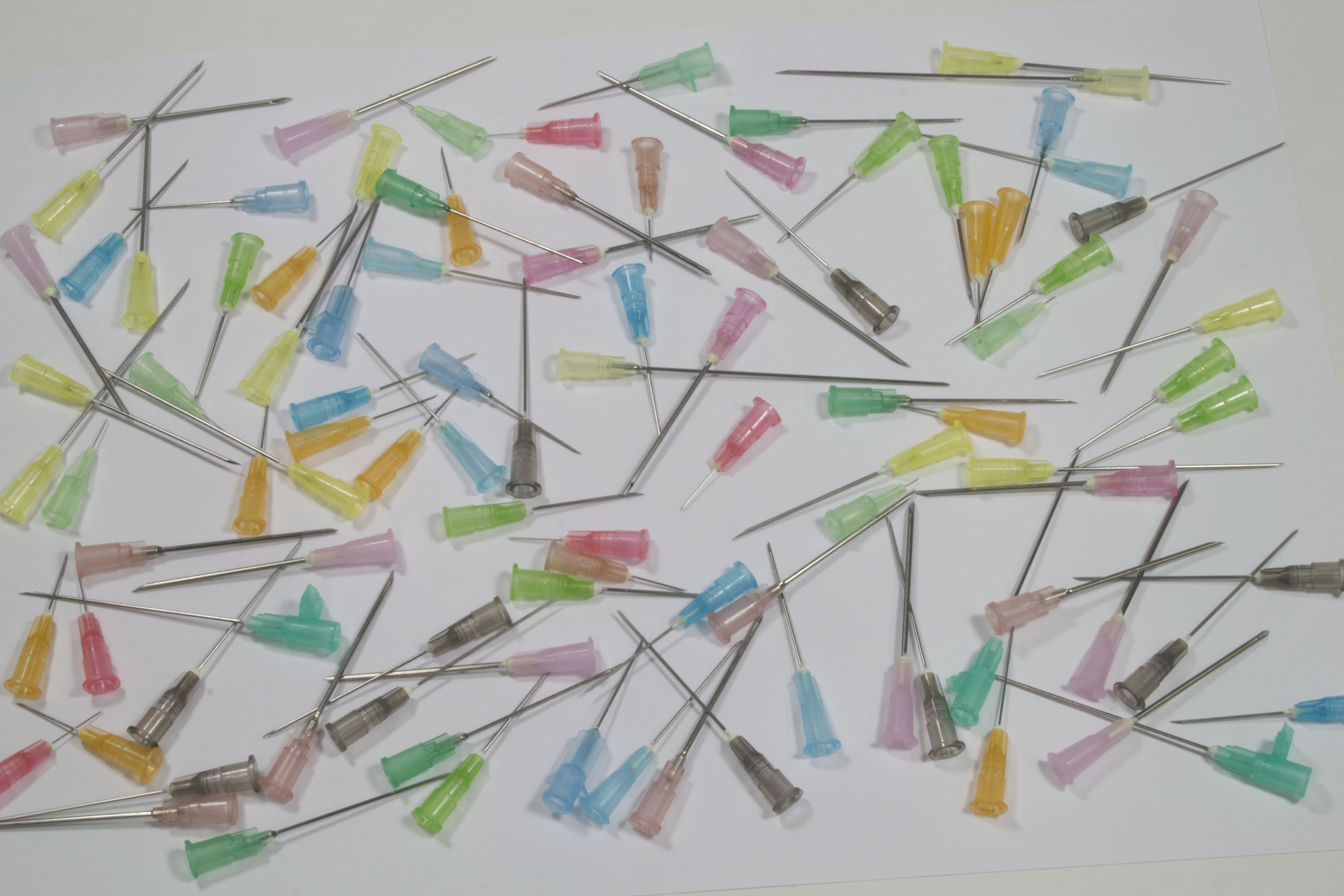The safety of injection needles at issue

On 23 March 2015, the Dutch TV programme EenVandaag, a current affairs programme of the public network broadcasted a report about the possible presence of non-cured adhesive in injection needles. The Dutch Health Care Inspectorate (IGZ) commissioned RIVM to verify this through an investigation. Two types of needles from the Terumo brand were involved (K-Pack II and Neolus); needles that are also used in the National Immunisation Programme (NIP) coordinated by RIVM. Pending the study, the use of the needles in question was advised against. The study by RIVM and the Belgian and Dutch inspections demonstrated that the use of the needles is safe.
Safety investigation
In an investigation like this, the safety of patients is the central focus, so it was important to reach a reliable opinion in a short time frame. The study was carried out in two phases: the first phase targeted the determination of possible presence of excess adhesive and the second at possible risks for the health of patients injected using these needles.In order to determine whether any excess adhesive was present in the needles and whether this could be injected together with the injection fluid, the needles were investigated in the laboratory. They were studied under a light microscope first, and needles with observed irregularities were further studied using a Raman microscope in order to establish which substance was found in the injection needle: adhesive or plastic. A total of over 7000 needles were investigated. Not all of those needles were Terumo brand; for comparison needles from other brands were tested as well.In order to establish possible health risks for patients, various scenarios were studied based on the composition of adhesive. The various manners of injecting (subcutaneous and intravenous), various amounts and vulnerable user groups (children) were considered, in addition to what could happen in the worst case (worst-case scenario).
Hardly any adhesive present
Of all of the Terumo needles studied, less than 1% proved to contain excess cured adhesive, and the same was found for the needles of other brands tested. Non-cured, liquid adhesive was not found. However, plastic particles were found that, in minimum quantities, may be injected along with the injection fluid. These quantities were well below the regulatory safety limit for injection fluids.It was demonstrated that the excess adhesive did not pose any health risk, even in a worst-case scenario. The plastic particles do not pose any risk either. In other words, the injection needles tested were safe for use.
New grounds
Injection needles are among medical devices; products that are used for diagnosis or treatment in health care, other than medicines. Medical devices cover an extremely wide area of products, varying from implants, such as pacemakers and hip prostheses, surgical instruments, MRI scanners to blood glucose metres for home use. This was the first time a case like this occurred in the Netherlands. With a team of experts from various disciplines, RIVM was able to complete the study in two months, thus removing any concerns that were raised by the EenVandaag broadcast.